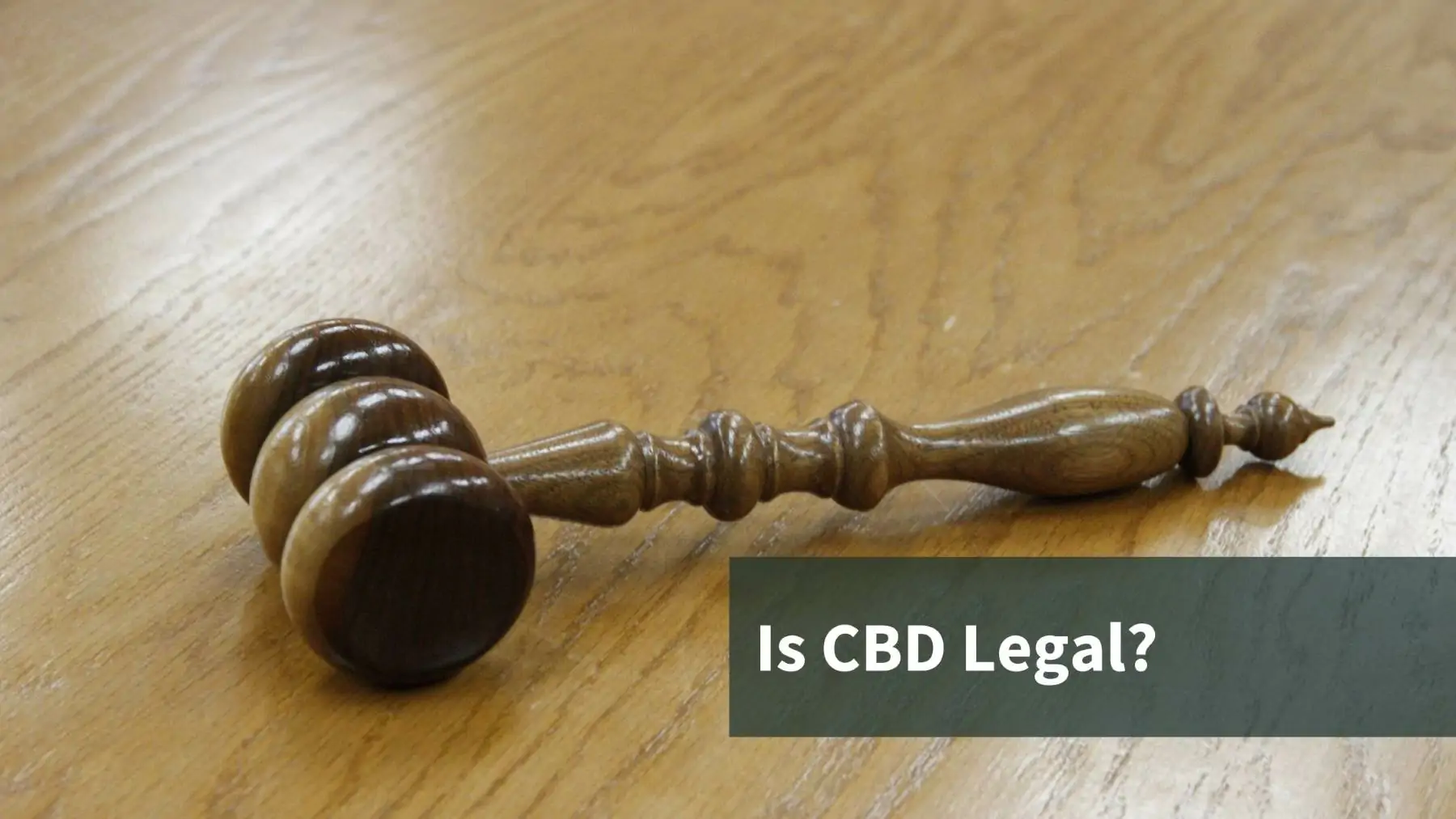No products in the cart.
Is CBD Legal? What You Should Know

Key Takeaways
- The 2018 Farm Bill defines hemp as cannabis that contains no more than 0.3% delta-9 THC on a dry-weight basis.
- That same bill classifies hemp as an agricultural commodity and excludes it from the Controlled Substances Act.
- CBD and other cannabinoids derived from hemp are also considered “agricultural commodities” and legal according to the KAB vs. United States Postal Service decision.
In the past eight years, cannabidiol (CBD) has catapulted from a fringe cannabis byproduct to a wellness industry juggernaut. Today, you can find it as an additive in various products, including gummies, canned beverages, and even face masks.
Because CBD was only just legalized in the 2018 Farm Bill, CBD is still subject to quickly evolving rules and regulations on the state level. In this post, we’ll talk about federal regulations regarding CBD, why where CBD comes from is important, and the current government oversite landscape.
Disclaimer: This piece is for informational purposes only. This piece in no way is or claims to be legal advice and should not be misconstrued as such.
What is CBD?
CBD, short for cannabidiol, is one of the 100+ natural chemical compounds produced by the Cannabis Sativa plant. Unlike THC, CBD is a non-intoxicating cannabinoid, meaning that consuming it won’t make you feel “high.”
CBD is believed to help with the uptake of beneficial molecules and inhibit the uptake of less desirable molecules by your body’s endocannabinoid system. It’s believed that CBD acts as a facilitator and helps your body run more efficiently.
Is CBD Legal?
Federally speaking, yes. For the most part. It’s complicated.
We’re going to try to set the record straight. Starting at the federal level and working our way down into the nuances set forth by the Food and Drug Administration (FDA) and the Drug Enforcement Agency (DEA).
The 2018 Farm Bill Definition Of Hemp
Our legal odyssey begins with the 2018 Farm Bill, which splits “cannabis” into two working definitions.
- Hemp – A federally legal industrial commodity to be defined as cannabis that contains not more than 0.3% delta-9 tetrahydrocannabinol on a dry-weighted basis.
- Marijuana – A federally illegal drug that’s defined as cannabis containing more than 0.3% delta-9 THC on a dry-weighted basis.
The new definition pushed through with bipartisan support helped carve out a niche for cannabinoids like CBD, CBG, CBN, and more.
CBD From Hemp vs. CBD From Marijuana
Now that we’ve established that cannabis can fall into two camps, hemp, and marijuana, let’s confuse the issue. Both hemp and marijuana produce the same cannabinoids but in different concentrations.
That means we can extract CBD from hemp plants and marijuana plants.
However, only CBD that we extract from hemp plants is treated as an agricultural commodity and legal in the eyes of the USDA. If we extracted CBD from marijuana plants, it would still be considered a drug and prohibited by the Controlled Substances Act (CSA).
USDA & FDA Oversight
Technically, the U.S. hemp program is maintained and regulated by the United States Dept. of Agriculture, but the FDA oversees all products that you consume. As of this writing, there is some disconnect between these executive agencies that’s allowed the CBD industry to develop unchecked.
For the sake of this post, we’ll focus more on the consumer side of things. The FDA has essentially said that they will not regulate the hemp industry (more than they already do) without further guidance from Congress. As of now, the FDA has said that CBD-infused products live in a legal gray area and that vendors cannot make any medical claims about cannabinoids. Aside from those two rules, the FDA has all but washed its hands of this multi-billion dollar industry.
Can You Buy and Sell CBD Legally?
Because CBD derived from hemp is considered an agricultural commodity, you can buy and sell hemp products legally. That means you can ship said products, too, via the United States Postal Service.
Judge James Gilbert ruled as such in the KAB vs. United States Postal Service case when he declared that products like CBD oils and edibles derived from hemp are allowed to be shipped via the postal service.
However, new federal legislation called the “Preventing Online Sales of E-Cigarettes to Children Act” has effectively banned the online sale and shipment of vaporizers and vaporizer cartridges.
Is CBD Legal In My State?
We won’t be discussing the state-level legality of CBD in this post, but we plan to in an upcoming series. Please stay tuned while our content writer and director of E-Commerce, T.J., does a deep dive into the legality of CBD and different CBD products in each state.
Note: This post was originally published on December 9th, 2021. It’s been updated by the original author on August 29th, 2024.
